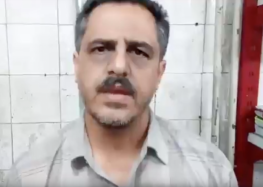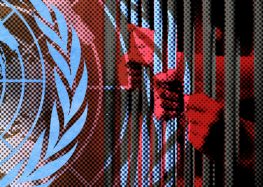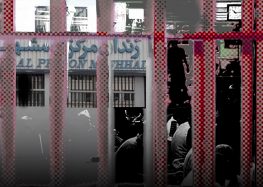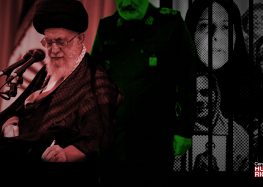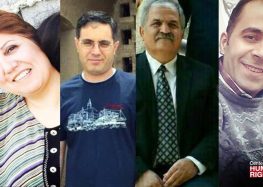Sixteen More Prisoners Executed Secretly in Mashad on 23 & 24 May
Reliable sources have told the International Campaign for Human Rights in Iran that another round of unannounced secret group executions took place in Vakilabad Prison in Mashad on 23 and 24 May.
Twelve prisoners were hanged during secret group executions on 23 May. All 12 prisoners were allegedly charged with drug trafficking. Four other prisoners were executed on 24 May; among them three sisters. The three sisters are said to have been also allegedly convicted of drug trafficking charges. The fourth executed prisoner was charged with rape.
The Campaign was able to gather more information about the executions carried out in April and May, reported by the Campaign in the past few weeks. According to reports, 10 inmates were secretly hanged at Vakilabad Prison on 6 April. Also, on 13 April, 12 other prisoners were executed.
In May, there was also at least one other group execution at Vakilabad Prison. Local sources have also reported another 10 executions on 16 May. In all executions performed on 6 April, 13 April,16 May, and 23 May, the families and lawyers of the inmates were not informed or present at the time the executions were carried out.
Prior to November 2009, decisions about upholding or revoking death sentences for drug trafficking suspects were divided between the the Head of the Supreme Court and Iran’s Prosecutor General. During a press conference on 8 December 2009 , referring to changes in authority for issuing and ordering execution sentences for drug trafficking charges, General Prosecutor Gholamhossein Mohseni Ejehi said, “During the new term, due to certain reasons, the Head of the Supreme Court felt that this responsibility was too arduous for him and suggested that it be carried out entirely by the Prosecutor General’s Office. Currently, all cases with death sentences are reviewed in the Prosecutor General’s Office….Death sentence rulings will be reviewed and carried out quickly. As rulings will not be delayed at the Supreme Court any longer, we will try to see the cases carried out in an up-to-date fashion and without delays, especially in the cases of principle elements.” (source)
Several sources told the Campaign that hundreds of prisoners have been secretly executed inside Vakilabad Prison since 2009, and hundreds of other prisoners on death row are awaiting their death sentences to be carried out.
Despite these reports about widespread secret group executions at Vakilabad Prison and international objections to these executions, the Iranian government and judicial authorities have maintained silence about them. In addition to Campaign sources that report from inside judicial, governmental, and prison organizations of Mashad, many witnesses have testified to the executions taking place.
In an interview with the Campaign, Ahmad Ghabel, a theological researcher, reported of the executions of 50 prisoners convicted of crimes related to drug trafficking during his first imprisonment at Vakilabad Prison between March and May 2010. During his second imprisonment in the fall of 2010, Ghabel reported of the continuation of secret group executions in the prison. In media interviews, Ghabel said that about 60 prisoners were executed in the fall of 2010. (source)
In a letter to the Head of the Judiciary, Hashem Khastar, another prisoner of conscience inside Vakilabad Prison, reported widespread, unannounced, and secret executions. As an example, Khastar referred to the executions of 63 inmates in just one day on 10 August 2010. (Hashem Khastar’s letter). None of these executions have been announced by official Judiciary sources.
The nephew of one of the inmates executed on 18 August 2010 has told the Campaign that 67 prisoners were executed on that day.
The Campaign has reported of similar secret executions inside Ghezel Hessar Prison, Taibad Prison, Birjand Prison, Orumiyeh Prison, and prisons located in Ahvaz, where executions are not announced by Iranian judicial or government authorities. The Campaign has repeatedly a called on Iranian authorities to act transparently and with accountability in these cases of execution which continue to take place across Iran’s prisons. Iranian judicial authorities’ silence about the secret executions inside Vakilabad Prison continues, though in his March 2011 report, the UN Secretary General wrote that in a meeting between the staff of the UN High Commissioner on Human Rights and their Iranian counterparts in Tehran in December 2010, the Iranian team confirmed 60 executions at Vakilabad Prison. The same authorities have so far not presented any statistics about the actual number of executions in this prison.


